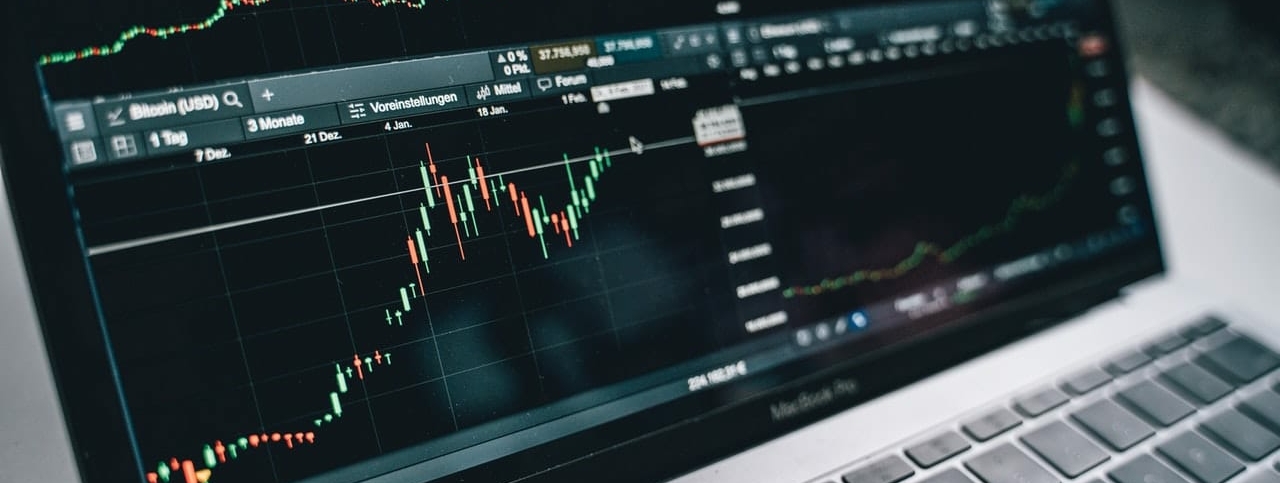In this English vocabulary worksheet, we will be talking about the following things:
- A definition of Stock Market.
- Vocabulary words regarding the Stock Market.
Read on!
Wether you wish to take the IELTS, TOEIC, TOEFL, CAE, FCE, BRIDGE, BULATS (Linguaskill) or even BRIGHT ENGLISH , you need to enhance your English vocabulary in order to prepare for your test. Vocabulary is also essential if you wish to learn English to perfection online! We have have made a long list of vocabulary worksheets:
- Anthropology Vocabulary
- Chemistry Vocabulary
- Real Estate Vocabulary
- Purchase Vocabulary
- Product Vocabulary
- Research Vocabulary
- Phone Vocabulary
- Payment Vocabulary
- Office Supplies Vocabulary
- Management Vocabulary
- Law Vocabulary
- Human Resources Vocabulary
- The Factory Vocabulary
- Vocabulary List: Bank and Finance
- Computer Vocabulary
- Marketing Vocabulary
- Social Media Vocabulary
- Meteorology Vocabulary
- Culture Vocabulary List
- Architecture Vocabulary
- Sociology Vocabulary
What Is the Stock Market? Definition and Explanation
The Stock Market is the financial market where company shares are issued and traded.
Example: ownership titles issued by corporations and listed on the stock exchange.
For whom is the Stock Market intended?
It’s directed at both institutional investors, which are bodies such as investment funds or banks, and individual investors, which are ordinary people.
Why should one be interested in the Stock Market?
Having an interest in the Stock Market is about following the economy in the broad sense and the business world in particular.

Stock Market Vocabulary: List of the Most Important Words
| Word | Definition |
|---|---|
| Ask | As opposed to bid, this is the minimum price a seller is willing to receive for a security |
| Blue chip stocks | Shares of major companies that are leaders in their sector. |
| Dividend | The earnings a company equally shared among the shareholders in proportion to the number of shares they hold |
| Issue | Increasing the number of shares in a company's share capital |
| Leverage | Borrowing shares from a brokerage firm and to sell them at a higher price, then keeping the extra money |
| Margin | It’s the difference between the total value of one’s investment, and the value lent by one’s broker |
| Slump | Synonymous to collapse |
| Spike | A very sharp rise of a market |
| Spread | It's the margin between bid and ask prices of a share |
| Tumble | Synonymous to collapse, to falter |
| Stock market vocabulary for beginners | |
| Bond | A debt security |
| Cash | A market where shares are immediately exchanged for currency |
| Day trading | Repeatedly making speculative moves (buying and selling) in the same day before the close of the market |
| Expense ratio | It's the percentage of the fund's assets that’s lost each year to pay the major bills |
| Fluctuate (to) | Upward or downward changes in a market over a long-term study |
| Index funds | An investment fund that seeks to reproduce, as much as possible, the performance of a specific stock market benchmark |
| Mutual fund | It’s a financial instrument based on money raised from numerous investors for various securities and shares |
| Market Order | It’s a request to buy or sell assets on the stock market. It can be sent directly to the financial market, or to an intermediary |
| Price-to-earnings ratio | It compares the current price to earnings to determine whether the stock is overvalued or undervalued |
| Stocks | Securities and titles |
| Target-date-fund | Investments with target maturity dates that align with key goals in investors’ lives |
| List of basic stock market vocabulary | |
| Averaging down | When an investor takes advantage of a fall to buy more stocks |
| Bear market | A period of time when the price is falling |
| Beta | A coefficient that measures the relative volatility (or specific risk) of a security compared to its benchmark |
| Bull market | A period of time when the price is rising |
| Going long | Means having foreseen an upward trend for a financial asset |
| Haircut | An extremely tight bid-ask spread for a particular share |
| High | High level of a security |
| Hold out | As opposed to Support, it’s the level at which the highest price is stopped by sellers to delay the price increase |
| List | To be admitted to the stock exchange |
| Low | Low level of a security |
| Moving average | The average price of a share during a given period |
| Opening | The earliest displayed price for a security at the beginning of the day's trading |
| Pink Sheet Stocks | Securities that don't meet the requirements to have a listing on a standard market exchange, but they can be traded ‘over-the-counter’ |
| Quote | The latest share price information |
| Rally | It's an increase following positive information, or a public feeling of trust |
| Sector | A cluster of shares of the same corporation |
| Short selling | Selling a security you don't own to buy it back later |
| Stock symbol | It’s a unique combination of letters or numbers used to identify a share on the stock exchange |
| Volatility | A stock that goes up and down quickly |
| Volume | Number of securities traded during a trading session or transaction |
| Yield | The yearly income that a share provides, at a given moment, to its holder |
| Broker Vocabulary | |
| Agent | It’s someone who records buy and sell orders in the financial markets for his or her clients |
| Broker | An intermediary in charge of placing buy and sell orders on the markets |
| Deal | It’s the sale of a company's assets, or shares on a stock market |
| Factor | Circumstances that may affect the share price |
| Go-between | They intervene between economic agents by adjusting the supply of capital to the demand for capital, that is by draining the unused savings of some agents to lend or re-lend them to other agents. |
| Middleman | Synonymous to broker, go-between, intermediary |
| Negotiator | Carries out stock market transactions on behalf of its clients, who place investment orders with it. |
| Representative | Licensed professionals who trade in stocks and shares on behalf of investors |
| Trafficker | A person in charge of the technical and organisational management of advertising space and campaigns on a website, mobile application or network |
| Trustee | Some organisations such as banks, investment companies, management companies, insurance companies |
| Stock Exchange Vocabulary | |
| Arbitrage | A transaction in which a security (or a line of securities) is sold to buy another security, considered to have a higher potential gain |
| Asset | What is traded on the markets, such as shares, bonds, currencies or raw materials |
| Big Board | An informal term for New York Stock Exchange |
| Capital | A company’s value related to the market price |
| Little Board | An informal term for New York second Stock Exchange |
| Negotiable | It's a security generally traded on the secondary market after being sold on the primary market |
| Portfolio | A set of investments held by an investor |
| Securities | Shares and stocks traded on the stock exchange |
| Stake | A financial contribution from one company to another |
| Stock exchange | A stock trading place |
| Stockholder | A natural or legal person who holds shares in a company |
| Stock market | Synonymous to stock exchange |
| Trade | Buying and selling on financial markets |
| Stock Market Investment Vocabulary | |
| Buy-out | It’s a financial scheme enabling the purchase of a company through a holding company |
| Commodities | It’s the trade, in large quantities of raw materials, and more generally basic materials, be they metals, agricultural, energy, etc. |
| Debenture | It’s a fragment of debt raised by a company, a local authority or a state |
| Earnings per share | It indicates the theoretical growth of a shareholder |
| Floatation | Selling part of the company in the shape of shares, which are then traded |
| Growth stocks | Shares in a company that investors and traders expect to continue to grow rapidly |
| Initial Public Offering (IPO) | When a company decides to start selling its shares to the public |
| Investment | It’s buying or selling securities on the financial markets |
| Liquidity | The ability to buy or sell assets quickly in large quantities |
| Range bound share | A transaction in which the loss on the sale of a share is reduced to as small an amount as possible |
| Speculation | Carrying out a lot of short-term financial transactions in the expectation of making quick capital gains |
| Price Vocabulary | |
| Bid | It’s the price of current market demand |
| Boom | A fast-rising stock when the number of people wanting to buy quickly exceeds those wanting to sell a stock. |
| Bounce | A stock that is rising again after a significant decline |
| Bourse | It’s the place where stocks and shares which are listed on the stock exchange are bought and sold by investors. |
| Close | The price set at the close of the stock exchange, used as a reference for the following day’s opening of trading |
| Crash | A drastic and large-scale collapse in the prices of one or more asset classes |
| Dip | A slight decrease |
| Drift | A decreasing trend |
| Index | It’s an indicator that investors use to assess, evaluate and compare a cluster of stocks. |
| Loser | When the value of a share is falling |
| Plummet (to) | To drop down, synonymous to plunge |
| Plunge (to) | to collapse, to tumble |
| Price | A security trading value |
| Retreat | Refers to the fall of a stock after a rise |
| Rocket | A market whose shares are escalating rapidly in an unexpected way |
| Soar | Another word for rocket |
| Other Terms | |
| CAC-40 (France) | It's the main stock market index of Paris Stock Exchange |
| COMEX (New-York) | It’s an energy and precious metals exchange founded in New York in 1933, which merged with the Nymex, itself acquired by the Chicago Mercantile Exchange in August 2008 |
| DAX index (Germany) | Or Deutscher AktienindeX, is the main German stock exchange index |
| Dow-Jones (U.S.) | The oldest American stock index |
| Footsie (FTSE London) | A stock market index of the 100 most highly capitalised UK companies listed on the London Stock Exchange, over 70% of the London market |
| Hang-seng index (Hong-Kong) | It’s the flagship index of the Hong Kong Stock Exchange and run by Hang Seng Indexes Company Limited, a subsidiary of Hang Seng Bank |
| RTS Index | Or Russian Trading System, was a stock market index based on 50 Russian companies listed on the RTS Moscow Stock Exchange |
| Wall Street (U.S.) | It’s the world’s biggest stock exchange, based in Manhattan |
Study and Practice English Online on Globalexam’s Platform
Our vocabulary sheets are designed to give you what you need to succeed in learning vocabulary. Our online content allows you to access the courses wherever you are. Your GlobalExam partner is here to help.



